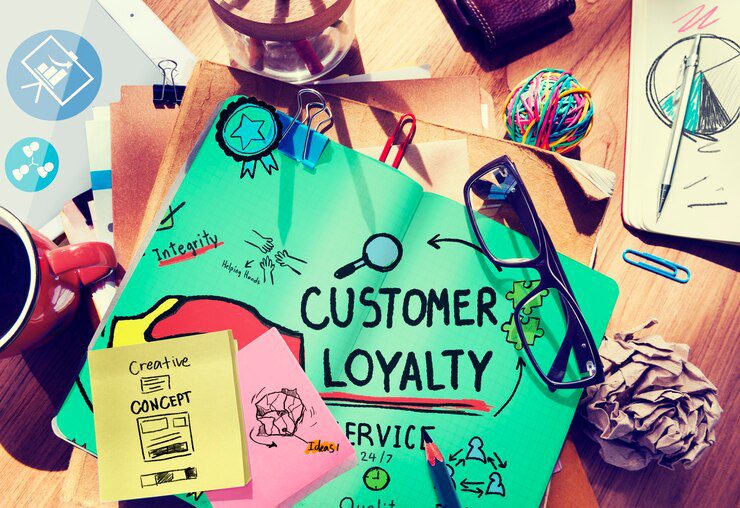In today’s world, consumers aren’t just buying products; they’re buying into brands. The rise of socially conscious consumers has reshaped the way businesses operate, making social responsibility a key component of brand strategy. Gone are the days when price and quality were the only factors driving customer loyalty. Now, more than ever, consumers are looking to support brands that align with their values and contribute positively to society. In this blog, we’ll dive into the impact of social responsibility on brand loyalty, exploring how brands can harness this powerful tool to build trust and long-lasting relationships with their customers.
The Growing Importance of Social Responsibility
Social responsibility refers to the ethical obligation of businesses to contribute to the well-being of society and the environment. This can take many forms, from adopting sustainable practices and reducing carbon footprints to supporting charitable causes and ensuring fair labor conditions. As the world becomes more aware of pressing global issues like climate change, inequality, and social justice, consumers are increasingly drawn to brands that take a stand on these matters.
According to a 2022 study by Cone Communications, 86% of consumers believe that companies should take a stand on social issues. Furthermore, 78% said they are more likely to purchase from a company that reflects their values. These statistics underscore the growing demand for brands to engage in social responsibility, as failing to do so could result in losing customer trust and loyalty.
How Social Responsibility Influences Brand Loyalty
Building Emotional Connections:
One of the key ways social responsibility impacts brand loyalty is by fostering emotional connections with consumers. When a brand stands for something meaningful, it resonates with customers on a deeper level. This emotional bond transcends mere transactions, giving consumers a sense of belonging to something greater. As a result, they are more likely to stay loyal to the brand, even in the face of competitors offering similar products or services.
Enhancing Brand Reputation:
A strong commitment to social responsibility can significantly enhance a brand’s reputation. In today’s digital age, where news travels fast and social media amplifies voices, a company’s actions (or inactions) are constantly under scrutiny. Brands that demonstrate a genuine commitment to social and environmental causes are more likely to earn positive press, attract media attention, and gain the trust of consumers. This enhanced reputation not only boosts brand loyalty but also attracts new customers who are looking to support ethical companies.
Differentiating from Competitors:
In a saturated market, it’s essential to set yourself apart to stand out. Social responsibility offers a unique way for brands to differentiate themselves from competitors. While many companies may offer similar products or services, not all of them prioritize ethical practices or social causes. By actively engaging in social responsibility, brands can carve out a niche for themselves and attract a loyal customer base that values ethical consumption.
Driving Long-Term Customer Retention:
Loyalty is not just about getting customers to make repeat purchases; it’s about creating a lasting relationship. Social responsibility plays a pivotal role in driving long-term customer retention. When a consumer trust in a brand’s mission and values, they are more likely to stick around for the long haul. This loyalty is particularly strong among younger generations, such as Millennials and Gen Z, who are known for their preference for socially responsible brands.
Real-World Examples of Social Responsibility Driving Loyalty
Several brands have successfully leveraged social responsibility to build loyalty and trust among their customers. Here are a few standout examples to consider:
Patagonia: The outdoor clothing brand Patagonia is a shining example of how social responsibility can drive brand loyalty. Known for its commitment to environmental causes, Patagonia donates 1% of its sales to environmental organizations and actively promotes sustainable practices. This strong stance on social responsibility has earned Patagonia a dedicated customer base that values the brand’s ethics as much as its products.
TOMS: TOMS Shoes pioneered the “One for One” model, where for every pair of shoes purchased, the company donates a pair to a child in need. This simple yet powerful commitment to social responsibility has not only made a significant impact on global poverty but has also fostered deep brand loyalty among customers who want to make a difference with their purchases.
Conclusion
In a world where consumers are increasingly prioritizing ethics over convenience, the role of social responsibility in driving brand loyalty cannot be overlooked. By aligning your brand with meaningful causes, you can build emotional connections with your customers, enhance your reputation, and drive long-term loyalty. As the examples of Patagonia, TOMS, and Ben & Jerry’s show, social responsibility is not just good for the world—it’s good for business too. So, why not start today? Embrace social responsibility, and watch your brand loyalty soar.







